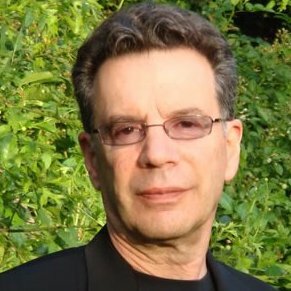Mick Jagger liked to say that “Sympathy for the Devil” exposed the power of evil, not its support of the dark angel.
Yet the line “… every cop is a criminal and all the sinners saints” bolstered the rage on college campuses and on the streets of America in the 1960s and 70s, a musical meme in the air and water as the Weather Underground and Black Panthers battled and even killed police officers.
I was a Vietnam protestor at Kent State University in the late 1960s. Our mission was to hurt the war effort and shame those supporting it, including the politicians of the day, whether Democrat or Republican. At eighteen years old, along with my friends and compatriots, and the influence of angry artists, we were convinced of our superior stance. We were like Mao’s rude boys and girls of the Cultural Revolution attacking “degenerate” people and symbols all around us, cleansing the landscape for the coming utopia.
Our influences, to name a few, were the beat poets of post-World War Two, self-proclaimed gangster writer Henry Miller, and Black Nationalist stars LeRoi Jones and Eldridge Cleaver.
In Bonnie and Clyde we rooted for the criminals and in Easy Rider and Cool Hand Luke we identified with the antiheroes.
For myself and my rebel-rousing friends, our “education” was hardly structured. We weren’t the serious, well-educated red-diaper babies such as David Horowitz. We were silly and dangerous: a dozen of us disrupting a history professor’s class at KSU playing kazoos because we deemed the teacher fascist, or maybe just old fashioned. One gray-faced Marxist used to float through the dormitory floors like an underworld shade, soft-pedaling communist one-liners, telling us we shouldn’t be listening to certain kinds of music, especially Joni Mitchell’s debut album, Song to a Seagull.
He told us she’d make us cry and we’d forget the revolution. Now for the good news–we laughed in his face.
It would take a number of years to rid myself of the anti-American virus. Unfortunately, what started a half century ago in the university and literary world would soon saturate all aspects of American culture, most importantly our educational system. Recently, we’ve hit a critical mass of insanity where some crimes are no longer crimes, and Bernie Sanders is calling for prisoners to retain their right to vote, even though nobody will be around in twelve years to count their vote unless we do even crazier things.
I still like “Sympathy for the Devil.” And although the music’s power makes the villain very attractive, I lost connection with the song’s glamorization of evil many moons ago.
Our energies need to return to the living, classical adventure of seeking the good. For it surely exists.
*****
Photo by Waldkunst (Pixabay)



Comments